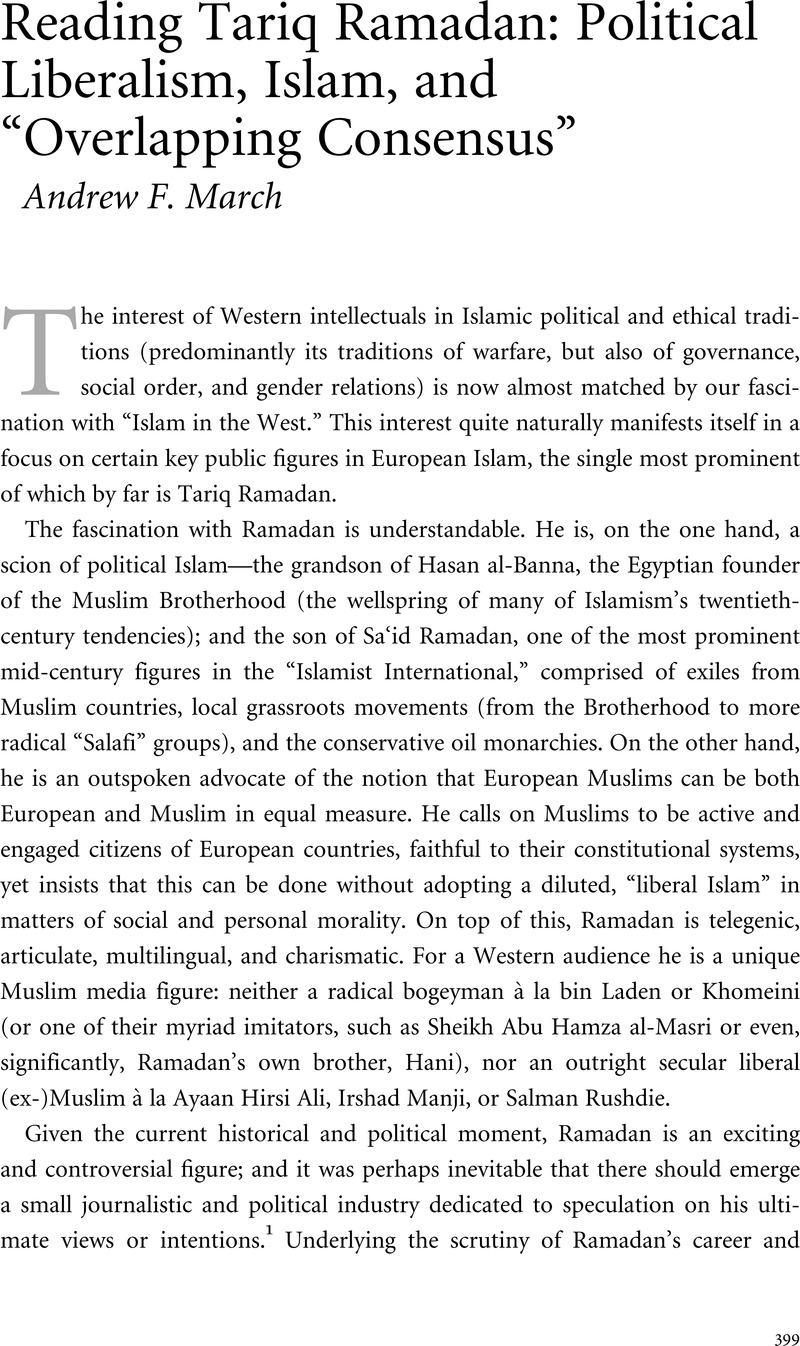Published online by Cambridge University Press: 25 March 2011

1 This literature is, of course, older and richer in France, where Ramadan is a household name and full-fledged public figure, but now includes periodic coverage in the British press, a prominent profile by Ian Buruma in the New York Times Magazine (February 4, 2007), essays by Timothy Garton Ash and Malise Ruthven in the New York Review of Books (October 5, 2006, and August 16, 2007, respectively), and, most recently and notably, Paul Berman's 29, 000-word polemic in the New Republic (June 4, 2007).
2 Of course, France is notably an exception to the Anglo-American preference for political liberalism. There the desire to create certain kinds of subjects or human selves out of citizens is publicly proclaimed, as is the antipathy to any form of religious or communal self-identification in the public sphere. This goes a long way toward explaining why Ramadan remains much more acceptable in Britain than in France. See, for example, Pascal Bruckner's defense of Ayaan Hirsi Ali and the need for an “enlightened European Islam” as opposed to political liberalism's interest in a “reasonable Islam”: http:\\www.signandsight.com/features/1146.html.
3 See Andrew F. March, “Liberal Citizenship and the Search for Overlapping Consensus: The Case of Muslim Minorities,” Philosophy & Public Affairs 34, no. 4 (Fall 2006), pp. 373–421, for an elaboration of the arguments in these paragraphs.
4 See Andrew F. March, “Islamic Foundations for a Social Contract in Non-Muslim Liberal Democracies,” American Political Science Review 101, no. 2 (May 2007), pp. 235–52, for references to all Islamic views referred to in the present article.
5 On this theme, see Lorenzo Vidino, “The Muslim Brotherhood's Conquest of Europe,” Middle East Quarterly (Winter 2005); and “Aims and Methods of Europe's Muslim Brotherhood,” in Hillel Fradkin, Husain Haqqani, and Eric Brown, eds., Current Trends in Islamist Ideology Vol. 4 (Washington, D.C.: Hudson Institute, 2006).
6 Tariq Ramadan, To Be a European Muslim (Leicester, UK: Islamic Foundation, 1999), p. 3. All page references are to this text and all italics are in the original.